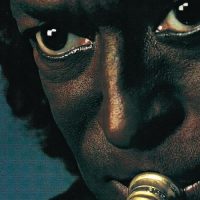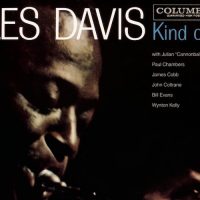by S. Victor Aaron
On the Columbia re-release of Miles Davis’ “The Complete In a Silent Way Sessions” …
This 3 cd set covers Miles Davis’ recoding sessions from September, 1968 to February, 1969, chronicalling the line of demarcation between “acoustic Miles” and “electric Miles”. It is an important piece of work for historical reasons, making the listener a fly on the wall while a genius and his talented supporting cast craft revolutionary music.
But what makes it all the more remarkable is that the large majority of the tunes here were promptly canned and not released until many years later or were never released at all, and yet there is not a single bad track…they were all fully formed concepts and performances to anyone else except (apparently) the leader.
During this creative period, Miles’ chaf smoked nearly everyone else’s wheat. The first two tracks are actually found in the Filles De Kilimanjaro LP (although I think these are alternate takes, it’s been ages since I last listened to Filles). From there, the music shifts dramatically to over to the pop side, then eventually settles toward the midpoint point of the jazz/rock continuum.
Coincidentally or not, this occurred about the time John McLaughlin got off the plane from the UK in January, 1969 and promptly joined the sessions. Then, there are first runs of the songs selected to appear in the eventual lp release of In A Silent Way.
The rehearsal version of the title track is a revelation: it was set to a soft samba beat and was more structured than the version we are accustomed to listening to. But evidentally, Miles thought that Joe Zawinul’s tune stood up well on its own without unnecessary instrumentation, which is why the final version’s melody just flows out without strict adherance to time. The original track SHHH/Peaceful had it’s own revelation as well.
It had been long thought that Miles was satisfied with recording this song at a relatively short length, then producer Teo Macero later lengthened it to a whole album side by looping several segments, creating its trademark hypnotic feel. But the unedited track clocked in at over 19 minutes, and contained a bridge.
This bridge was later removed and replaced, in effect, with the repeated snippets. The overall effect of this trickery rendered a much darker sound, something that Miles was surely striving for. A couple of additional tracks feature Joe Chambers on drums in place of Jack deJohnette, giving it a more pop-like rhythm and the contrast that can occur when even one musician is replaced.
The music Miles recorded in, say, 1973, is so far beyond the material presented here. But everything Miles did from 1969 up to the time of his death in 1991 — except for Montreux — can be directly traced back to these sessions. Sessions that changed jazz and changed music as a whole.
- Matthew Shipp – ‘The Cosmic Piano’ (2025) - June 17, 2025
- Ivo Perelman & Matthew Shipp String Trio – ‘Armageddon Flower’ (2025) - June 16, 2025
- Claudio Scolari Project – ‘Bloom’ (2025) - June 12, 2025




